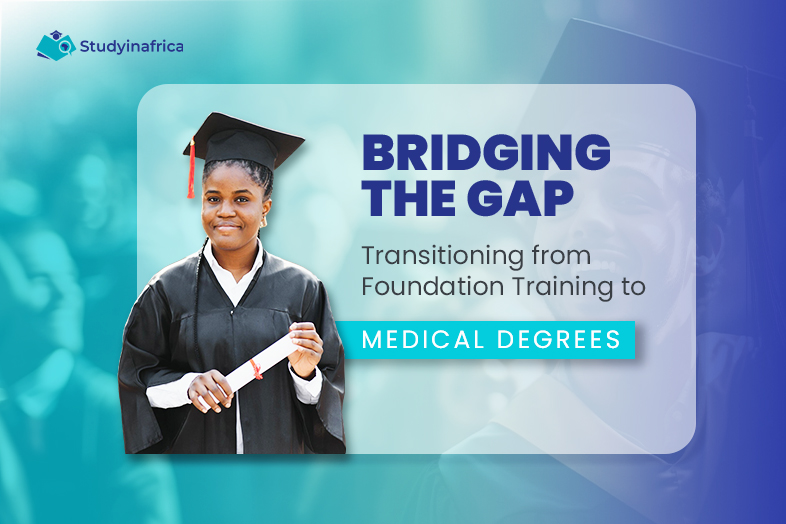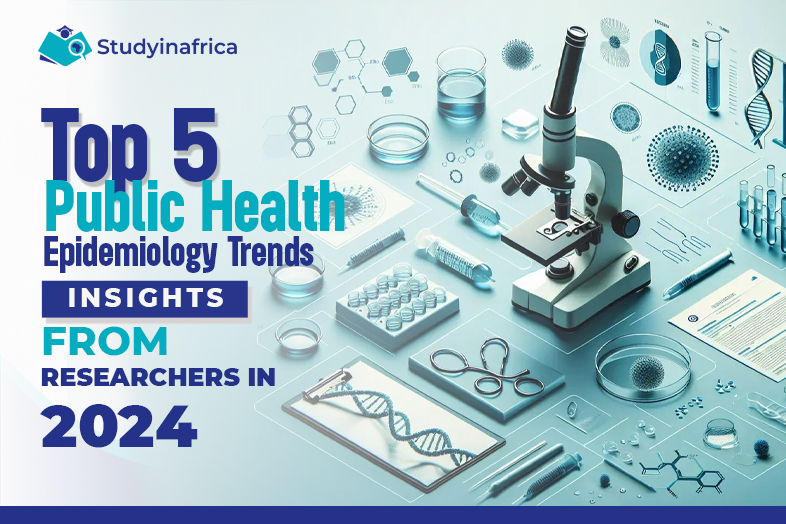
Blog Summary
Seeking a career in medicine is a noble and challenging journey, especially for students embarking on bachelor’s degree in medicine and surgery (MBChB degree). This program, fundamental for aspiring doctors, not only builds expertise in science and clinical skills but also instills the ethical foundation necessary to navigate complex dilemmas in modern healthcare. With the evolving landscape of medicine, where technological advancements and cultural diversity shape decision-making, addressing ethical challenges in MBChB programs has become a critical component of medical education. This blog explores how these challenges are tackled and the transformative role they play in molding future doctors.
- What is an MBChB Degree?
- Ethical Challenges in MBChB Programs
- How MBChB Programs Prepare Students for Ethical Challenges
- The Impact of Ethical Training on MBChB Career Options
- Meeting MBChB Entry Requirements: Setting the Stage for Ethical Excellence
- Adapting to Current Ethical Challenges in Healthcare
- Choosing the Best Schools for Medicine: Why Ethical Training Matters
- Conclusion: Shaping Future Doctors Through Ethical Education
What is an MBChB Degree?
An MBChB degree is the cornerstone of medical education in many regions, including Zambia, where students benefit from opportunities provided by distance learning Zambia programs. This undergraduate program blends academic knowledge, clinical training, and ethical instruction to prepare students for diverse roles in healthcare. Over the course of five to six years, students delve into anatomy, physiology, pathology, and various specialties, all while gaining hands-on experience in clinical settings.
A key aspect of the program is its holistic approach: students learn not only how to diagnose and treat illnesses but also how to make ethical decisions that impact patients’ lives. With comprehensive training, graduates can pursue numerous MBChB career options, from working as general practitioners to specializing or conducting research that advances healthcare.
For those unable to attend on-campus programs, online degree programs in Zambia offer flexible options, allowing students to balance their studies with personal commitments.
Ethical Challenges in MBChB Programs
Ethical dilemmas in medicine are inevitable. From patient confidentiality to resource allocation, future doctors face situations that test their integrity, empathy, and judgment. Here are some of the common ethical challenges that MBChB programs address:
1. Balancing Patient Autonomy and Physician Responsibility
Students are often confronted with cases where patients make decisions that conflict with medical advice. Respecting a patient’s autonomy while ensuring their safety is a delicate balancing act. For example, dealing with vaccine hesitancy in the current global landscape requires nuanced communication and ethical clarity.
2. Managing Resource Allocation
In many African nations, healthcare systems grapple with limited resources. Students in MBChB programs learn how to prioritize care ethically, ensuring fairness without compromising quality. Deciding which patients receive limited treatments, such as dialysis or ICU beds, is a recurring challenge. For a deeper dive into case-based ethical dilemmas in resource allocation, visit the AMA Journal of Ethics.
3. Addressing Cultural and Social Sensitivities
The multicultural nature of universities in Zambia introduces diverse perspectives on healthcare practices. Ethical training prepares students to respect cultural beliefs while adhering to evidence-based medicine. Navigating traditions, like herbal remedies or alternative healing, often requires both respect and diplomacy.
How MBChB Programs Prepare Students for Ethical Challenges
MBChB programs integrate ethical education through various methods, equipping graduates to effectively manage real-world situations. Let’s take a closer look at the strategies used:
1. Ethics-Focused Curricula
Most top universities in Zambia ensure that ethics is a core part of the curriculum. Courses in medical ethics provide students with frameworks like the Hippocratic Oath and principles such as beneficence, non-maleficence, and justice.
2. Simulated Scenarios
Practical training often includes simulated ethical dilemmas. Students participate in role-playing exercises where they navigate issues like disclosing terminal diagnoses or addressing family disagreements about treatment plans.
3. Mentorship and Real-Life Observation
Clinical rotations allow students to shadow experienced doctors, observing how they manage ethical conflicts. These experiences connect theoretical knowledge with practical application, providing valuable insights into decision-making under pressure.
4. Encouraging Reflective Practice
Many programs emphasize reflective journaling, where students document and analyze ethical challenges they encounter. This fosters self-awareness and critical thinking, essential traits for responsible doctors.
The Impact of Ethical Training on MBChB Career Options
Graduates of an MBChB degree benefit from the ethical training embedded in their programs, enabling them to excel in diverse roles. Here’s how ethical competence enhances career prospects:
1. Better Patient Relationships
Doctors who navigate ethical challenges with empathy and professionalism build stronger trust with patients, a cornerstone for success in general practice or specialty care.
2. Opportunities in Global Health
Ethically trained doctors are in demand worldwide, especially in organizations like Médecins Sans Frontières or WHO. A solid ethical foundation helps doctors adapt to varied cultural and regulatory environments.
3. Pathways in Academia or Research
Students interested in advancing medicine through research find that a background in ethics supports their ability to address controversial topics, such as gene editing or clinical trials.
4. Specializations with Ethical Complexities
Certain fields, like oncology or psychiatry, require a heightened sensitivity to ethical issues. MBChB graduates with strong ethical reasoning often excel in these specialties.
Meeting MBChB Entry Requirements: Setting the Stage for Ethical Excellence
Aspiring medical students need to meet rigorous MBChB entry requirements to join these programs. While academic qualifications like strong grades in biology, chemistry, and mathematics are essential, many schools also value personal statements and interviews that assess a candidate’s moral compass and commitment to healthcare ethics.
Prospective students should highlight qualities like empathy, resilience, and an interest in solving healthcare challenges—attributes that align with the ethical demands of the profession.
Adapting to Current Ethical Challenges in Healthcare
Modern medicine presents new ethical dilemmas, often influenced by technological advancements and societal shifts. MBChB programs remain at the forefront of addressing these challenges, ensuring that graduates are equipped to navigate issues such as:
1. Artificial Intelligence in Medicine
Utilizing AI technologies for diagnosis and treatment planning raises questions about patient privacy, algorithmic bias, and accountability. Ethical training ensures doctors use technology responsibly.
2. Global Health Crises
From pandemics to climate change-related health issues, doctors must balance individual patient care with broader public health priorities.
3. End-of-Life Decisions
As medical advancements extend life expectancy, the line between prolonging life and alleviating suffering becomes blurred. Ethical training guides doctors through these deeply personal and impactful decisions.
Choosing the Best Schools for Medicine: Why Ethical Training Matters
When selecting the best medical degrees, students should consider how well the program integrates ethics into its training. Universities in Zambia, both traditional and online universities, have made significant strides in this area. Institutions that prioritize ethical decision-making produce doctors who are not only skilled but also compassionate and culturally aware.
Many African universities, stand out for their balance of technical excellence and ethical rigor. These programs, particularly those focusing on community health, prepare students to address disparities in access to care effectively. For those unable to attend in person, online degree programs in Zambia provide accessible alternatives, ensuring ethical and high-quality medical education reaches a broader audience.
Conclusion: Shaping Future Doctors Through Ethical Education
The journey to becoming a doctor is as much about moral integrity as it is about scientific knowledge. Ethical challenges in MBChB programs play a pivotal role in shaping future doctors who are not only skilled practitioners but also empathetic human beings. By addressing dilemmas with compassion and fairness, these graduates set the standard for excellence in healthcare.
As the world continues to evolve, so too will the ethical complexities of medicine. Yet, the foundation provided by MBChB programs ensures that tomorrow’s doctors are equipped to navigate these challenges with grace and professionalism.
If you’re considering this rewarding path, now is the time to apply for MBChB and take your first step toward a meaningful career in medicine.
FAQs



